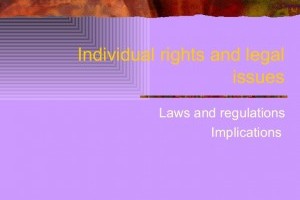Originally Posted on October 28, 2013 by Nancy Bailey
I changed the title of this old post to include high-stakes testing because it reminded me of the word “appropriate” and the situation in Florida surrounding The Ethan Rediske Act. I think it is important to revisit some of these court cases. What meaning do they hold for students with disabilities today? What’s special education if there is nothing special about it? And how does this reflect on education in general?
Not long ago children with disabilities were denied a free public education. Some were even institutionalized. Pennsylvania Association for Retarded Citizens (PARC), in 1972, and the case that followed on its heels, Mills v. Board of Education (MILLS), helped open the door for exceptional learners to attend public school and receive an “appropriate” education. Here is some information to refresh your mind or help you learn about those cases.
One word used in each case is “appropriate” and that word is worth reconsidering. If parents and teachers ask themselves, “Are students, all students, but especially students with disabilities, being given an ‘appropriate’ education with Common Core State Standards?” they already know the answer. If the comments I’ve heard are any real indication of how parents and teachers feel about what is happening in the classroom, I am certain the answer will be NO!
I hear parents, in general, fretting because their children are bewildered in school. This frustration passes into the family’s home life too. Students are beaten down with so much testing. They are sick of school. There is nothing enjoyable about learning. Magnify this ten-fold when it comes to students with disabilities.
It is sickening to think children are treated so badly with such little regard for, not only their feelings, but their development. I recently listened to two teachers discussing students who came to fourth grade without the so-called appropriate skills. They concluded that the skills were too advanced for their students in the earlier grades. This is a well-known fact. Check out research by the Alliance for Childhood.
Likewise, forcing students with disabilities to take tests beyond their reach, then grading the teachers and the school based on these tests, is not “appropriate” either. It hurts teachers—many will lose jobs—and it especially places undue distress on students. Many parents recognize what is happening in their child’s school. The situation is more drastic with students who have disabilities—whose special needs are ignored.
I believe it will take parents who connect with each other and appropriate advocacy groups to seek a class action suit, similar to PARC and MILLS, on behalf of students with disabilities, because their situation when it comes to “appropriate” is the most extreme. But such cases would have a far reaching positive impact for all children.
Consider the remark of Thomas K. Gilhool, Attorney and Pennsylvania Secretary of Education, 1987-1989. In referring to the PARC case he said:
In other words, what improves the world for people with disabilities improves it for everyone.

Leave a Reply